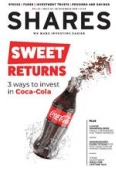Japan’s public pension fund GPIF, the largest in the world with $733bn of assets, will no longer allow shares to be loaned out from its global equity portfolio according to the Financial Times.
Hedge funds and other investors who engage in ‘short selling’, betting that shares will fall, need to ‘borrow’ shares before initiating their sell trades.
GPIF is thought to be seeking to establish its credentials as an environmental, social and governance (ESG) focused investor. The concern that led to the ban was that lending out stocks prevented the fund from conducting proper stewardship over its underlying investments.
That’s because there is a lack of transparency on the borrower and how they used the borrowed shares. When a stock is lent out, the voting rights are transferred to the borrower, which means the asset owner loses its direct engagement with the company.
The decision doesn’t come without a cost because according to the fund’s 2018 annual report it garnered $300m in fees from stock lending.
Although there is a chance that other asset managers will feel obliged to follow GPIF’s lead and ban short-selling on ESG grounds there are some potential fixes. For example, a fund could include a provision whereby the stock has to be returned for voting purposes.
‹ Previous2019-12-05Next ›

 magazine
magazine








